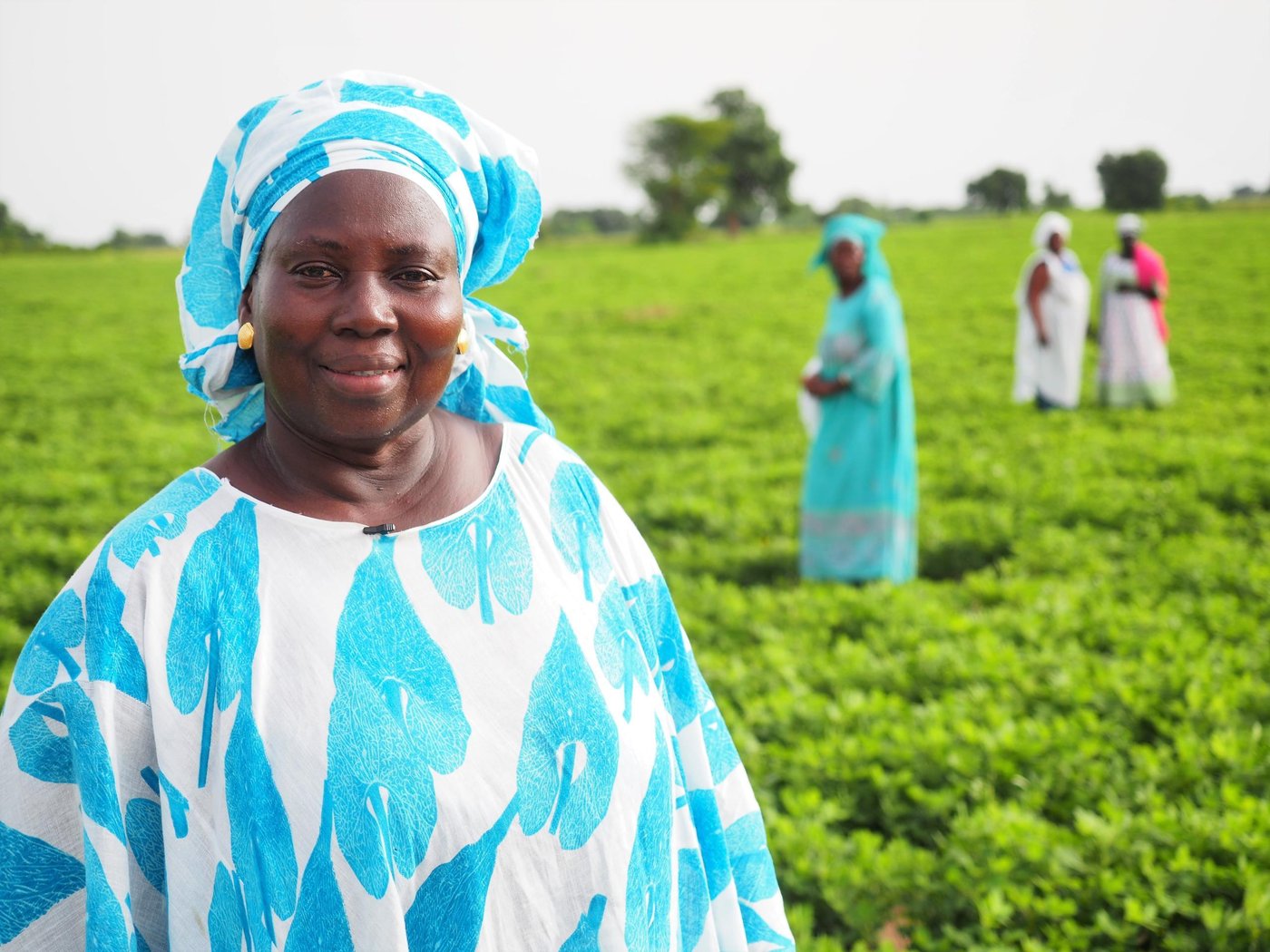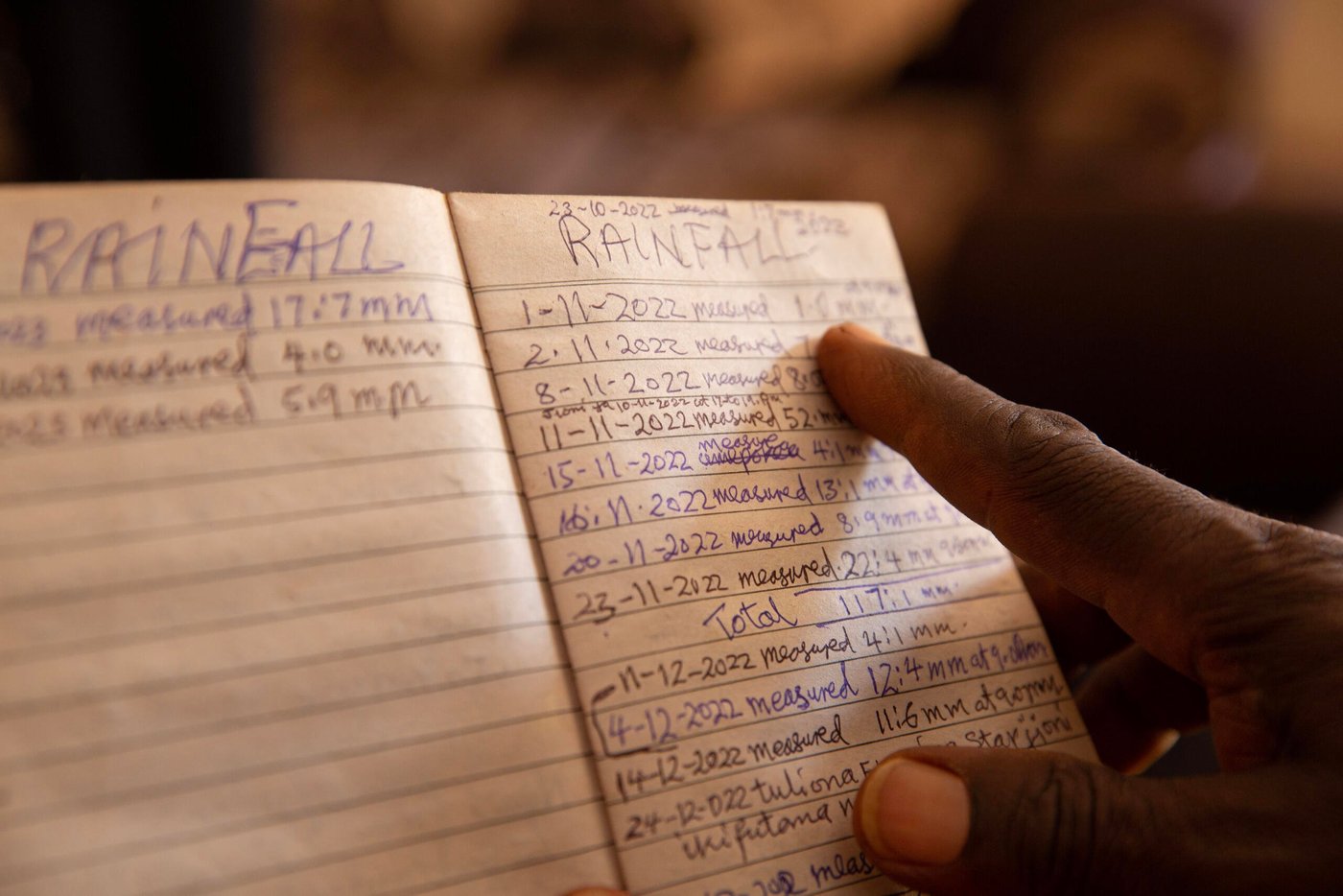
Extreme weather events and climate change put people’s lives at risk. It drives hunger and displaces entire communities. The ability to predict, warn and prepare for climate-related events such as floods and droughts is essential to protect and increase the resilience of communities.
Climate services combine information about upcoming weather, climate change and advice tailored to specific sectors and users.
Most countries in Africa do not have good enough weather and climate services that can help decision-makers take necessary action to reduce the impact of climate change. This includes lack of resources and expertise. The biggest challenge is to ensure that reliable climate information is processed and communicated in a way that enables individuals and communities to react before disaster strikes. For this purpose, climate information has to be accurate, timely, accessible, and understandable for all recipients - from the farmer to the policymaker.
Through our climate services project, started in 2015, we discovered that there are too few weather stations and a lack of interpretated data. Information is often shared too late, in a technical language, without relevant advice on how best to respond to the information. This hampers people’s ability to prepare for potential disasters and adapt to long-term implications of climate change.
We must strengthen the whole climate services value chain to better protect people’s lives and build climate resilience.


NORCAP’s impact
- We strengthen institutions and partners’ ability to provide accurate and timely climate information.
- We include local communities in the development of timely and accurate climate and weather information and make sure they have access to the information.
- We support institutions’ work to better finance and sustain capacities to deliver early warning alerts and climate information.
We provide climate services expertise to national meteorological and hydrological centres, UN organisations and regional climate centres. This includes meteorology and hydrology, climate data modelling, analysis, communication, community engagement, capacity building and more.
In 2023, we had 41 climate services experts working with 11 partners in nine countries to strengthen climate action across Africa.
Our main donors include the European Union, the Norwegian Agency Development Cooperation, the Norwegian Ministry of Foreign Affairs, Met Norway and the UK Met Office.
Our approach
We achieve the greatest impact through partnerships. That is why we collaborate with a wide range of national and international partners. We focus on creating, strengthening and implementing climate services, including essential weather information, across Africa.
From the local to the global level, NORCAP aims to increase the capacity of institutions to deal with natural hazards and send out early warnings to communities. This is key to reducing the impacts of climate change. Our focus is to support vulnerable communities, to make sure they have access to useful and relevant climate information.

What we do
Strengthening national capacity
Robust institutions are crucial for creating necessary preparedness plans at both national and local levels. To make this happen, we need the ability to create localised weather forecasts, update the infrastructure for weather and climate observation and develop climate information using existing data.
NORCAP works with national meteorological institutions and regional climate centres to strengthen their capacity in developing, sharing and using climate services and early warning systems. This includes improving data collection and management, weather and climate forecasting, impact-based predictions and effective communication of climate services.
Improving climate communication
Effective communication of climate information is essential for farmers and fishers to plan their activities and deal with climate-related challenges. To achieve this, we involve local communities and other users in creating climate information. This way, we can customise the information to be more useful and easier for everyone to understand.
Our focus is on disaster risk reduction, agriculture and food security. We make sure that the people who use the information are involved through surveys, group discussions, interviews and assessments. This helps us improve how we provide climate information and ensure it meets everyone’s needs.
Accessing climate finance
Many countries and organisations lack sufficient funding to act on the climate information they receive. To address this, we need to provide better access to forecast-based financing, climate finance and insurance. This is especially important for countries that are vulnerable to the impacts of climate change.
We support partners in fundraising and developing programmes related to disaster risk reduction, forecast-based financing, climate insurance initiatives and putting national plans for climate services into action.
How we work
Building technical capacity
We have extensive experience in working together with partners to strengthen the abilities of partner institutions. We assess the existing capacity, provide tailored expertise and create plans for sustainability, as well as developing exit strategies from start to finish.
Influencing policy and implementation
We work with regional organisations, such as the Intergovernmental Authority on Development’s Climate Prediction and Applications Centre (ICPAC), African Centre of Meteorological Application for Development (ACMAD) and others. We also cooperate with the UN, including the UN Development Programme Resilience Hub. Our goal is to develop tools and facilitate collaboration among local and national stakeholders involved in climate services and resilience work in Africa.
Working with communities
Local communities and users play a crucial role in climate services. Trust is key – without trust, we will not be able to improve climate services. Therefore, we prioritise working with communities, where the communities themselves define their needs and how we should work to meet these needs.

